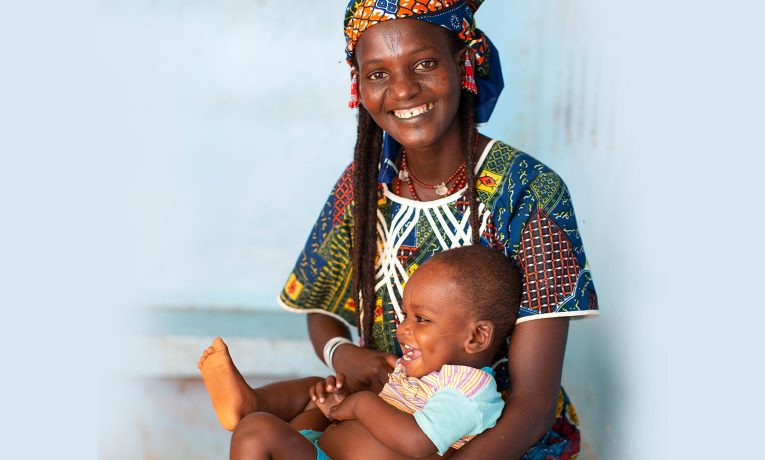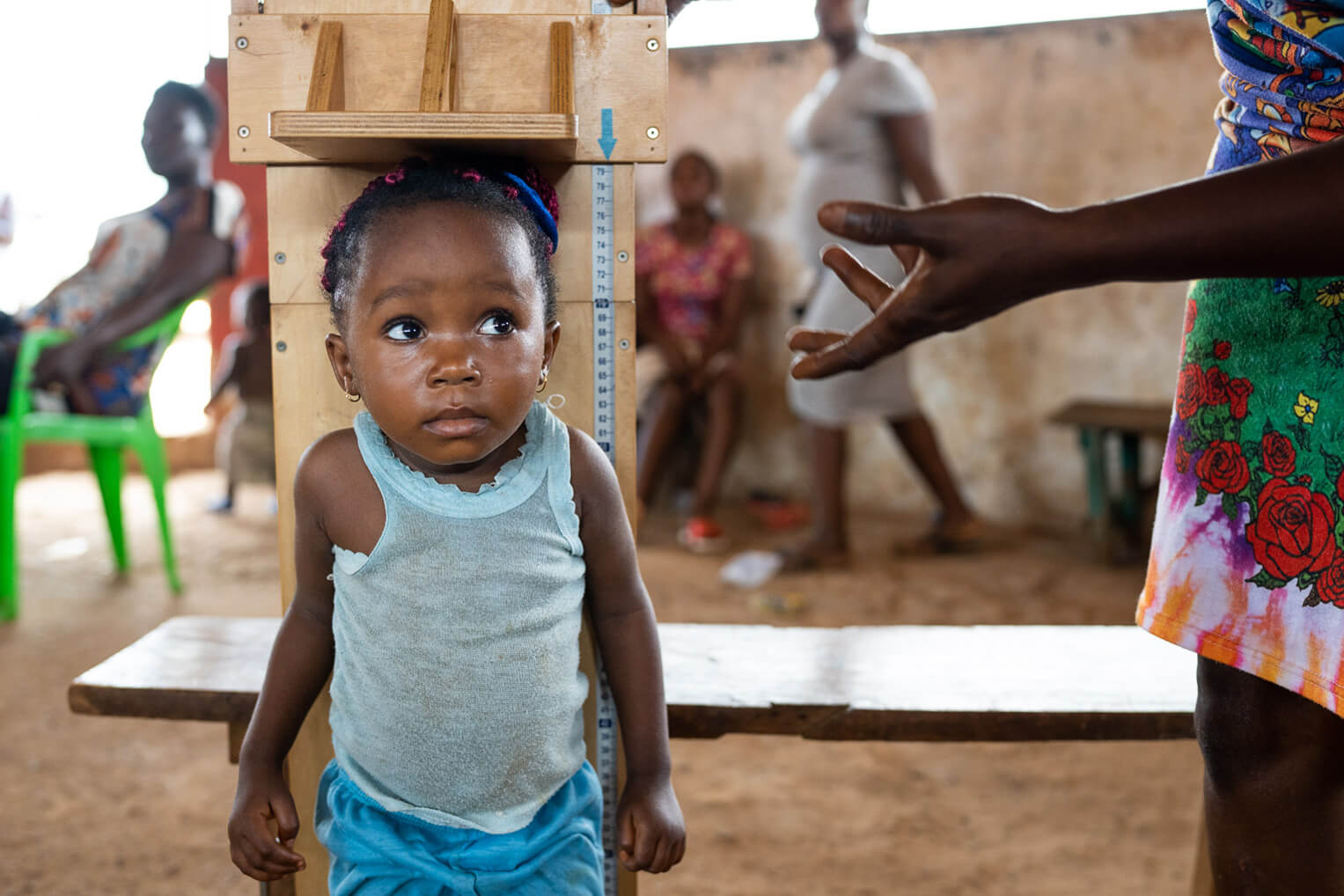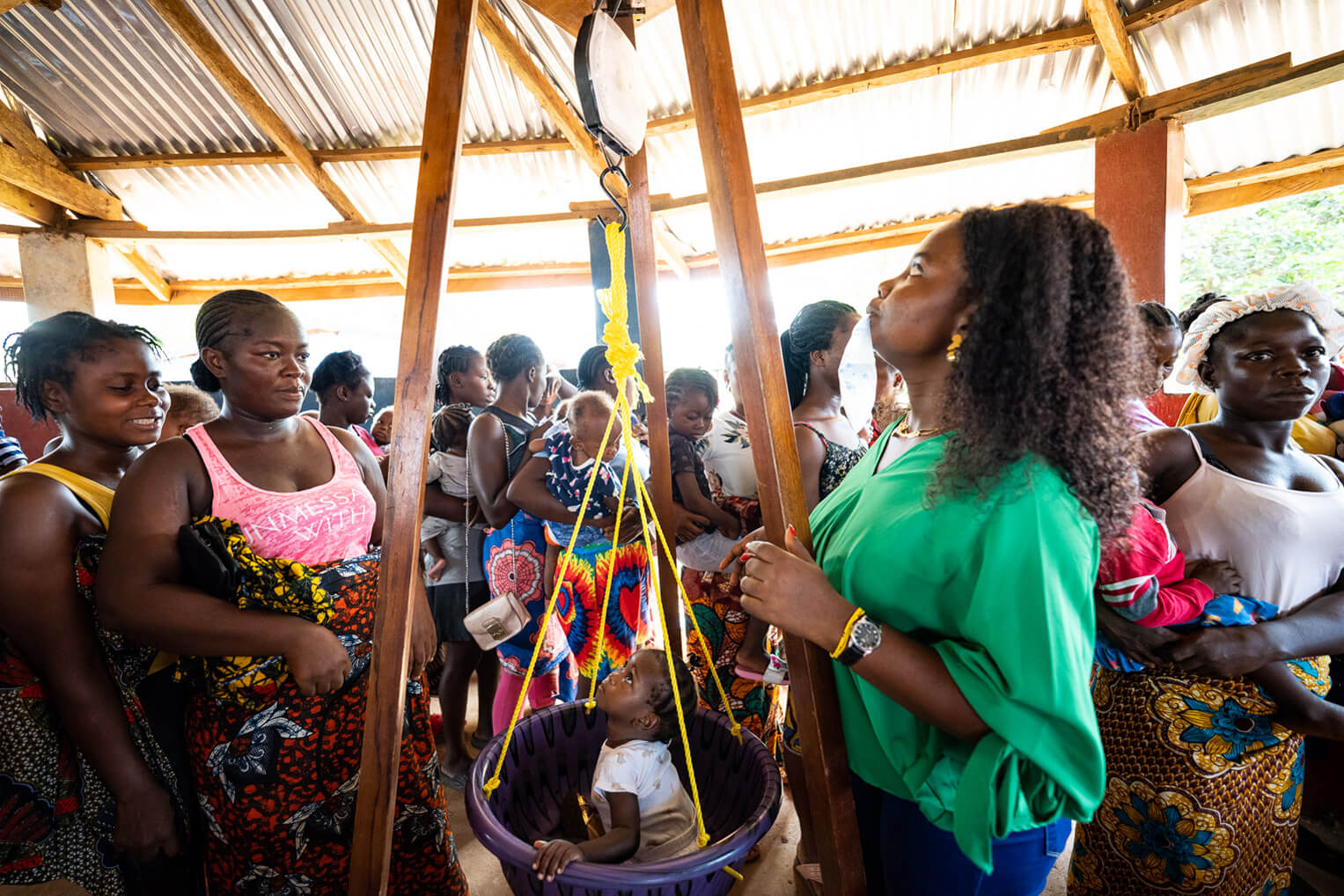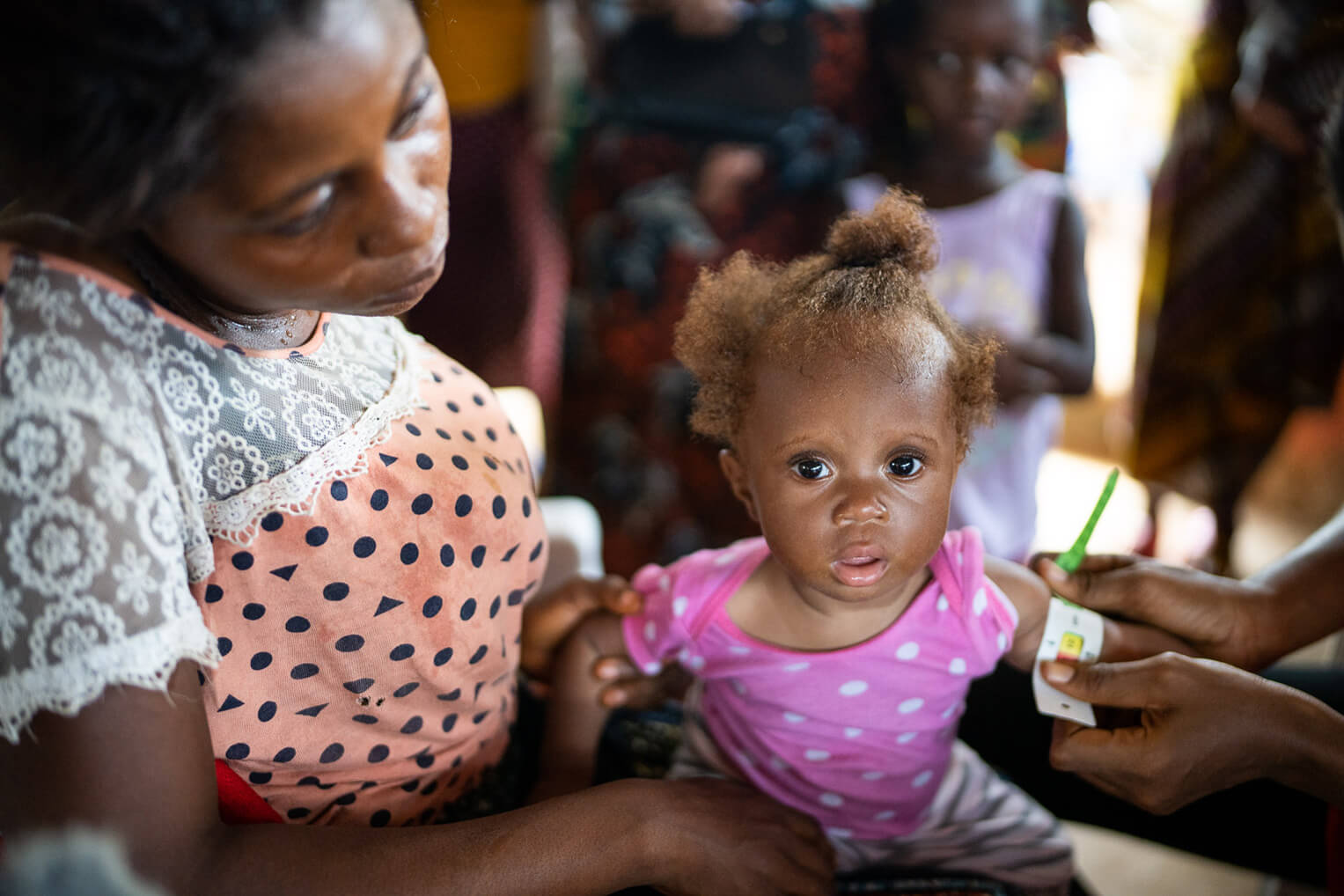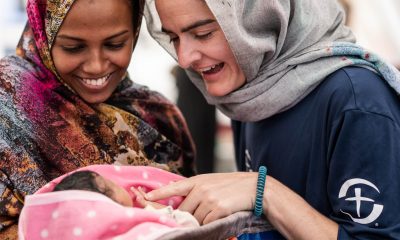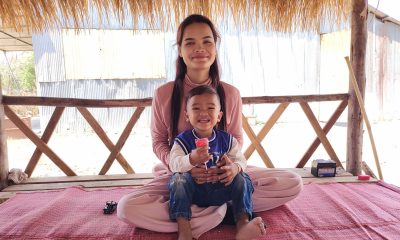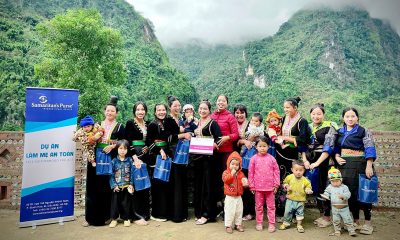Through our maternal child health programs in Liberia, families are seeing a new and brighter path for their children and their future.
It’s typically a long chain of tragic events that leads mothers and their malnourished babies to the pediatric ICU at ELWA Hospital in Monrovia, Liberia. When they arrive, that’s when Dr. Michael Bryant first sees them and hope begins to grow.
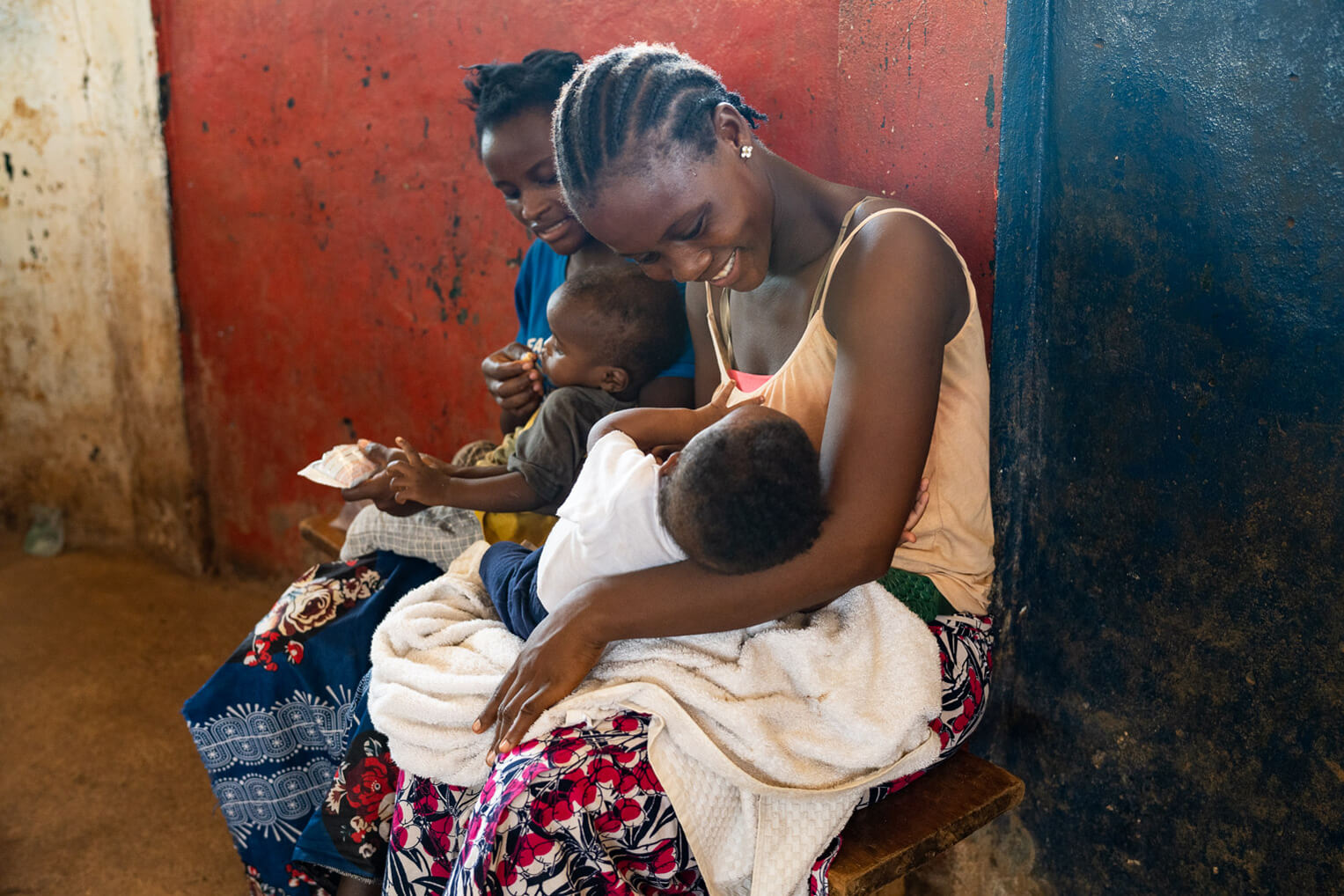
Young mothers and their children attended a screening and learning event to prevent and treat malnutrition.
Dr. Bryant examines the poorly cut umbilical cord on a patient named Favor, who is 3 months old. The baby has developed deadly tetanus through an infection, and the baby’s obvious malnutrition has decimated her ability to fight off any disease.
“She stopped eating,” the mother said. “She wouldn’t eat anything.”
Two Christians had found Favor and her mother where they were living on the streets of a city two or three hours away. Favor wasn’t expected to live through a single night. ELWA Hospital was the only healthcare facility in the country that was staffed and equipped to save the little girl.
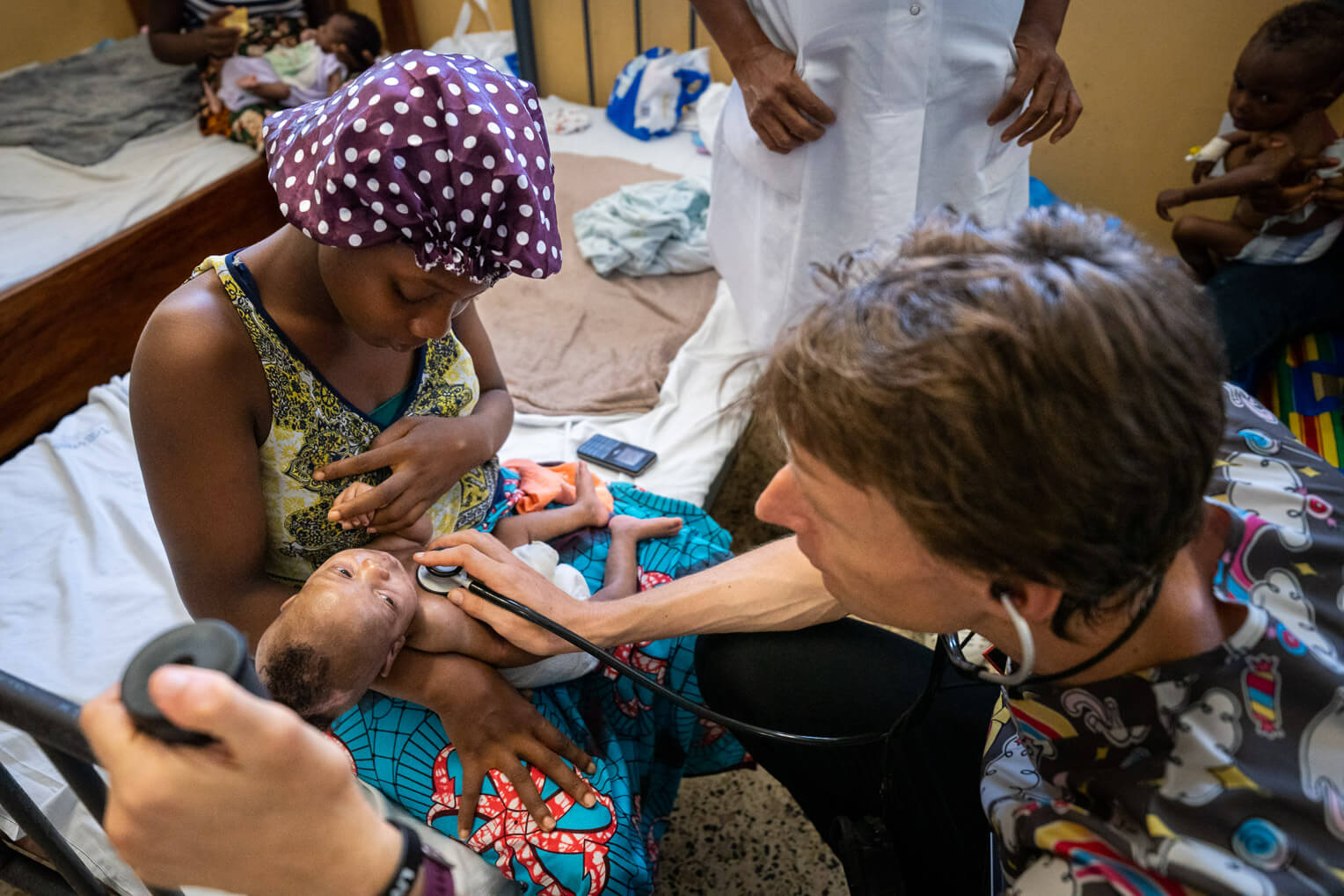
For some children, like baby Favor, malnutrition and infection combine to threaten young lives.
“It’s very difficult to be a mother here,” Dr. Bryant said. “It’s rare to see a dad appear. For many of these mothers, this hospital is the most comfortable they have ever been.”
For every young patient who makes it to ELWA, countless others go unaddressed. This is why Samaritan’s Purse has partnered with ELWA to significantly increase the hospital’s pediatric ICU and malnutrition treatment capacity. Otherwise there’d be nowhere for desperate mothers to bring their dying babies.
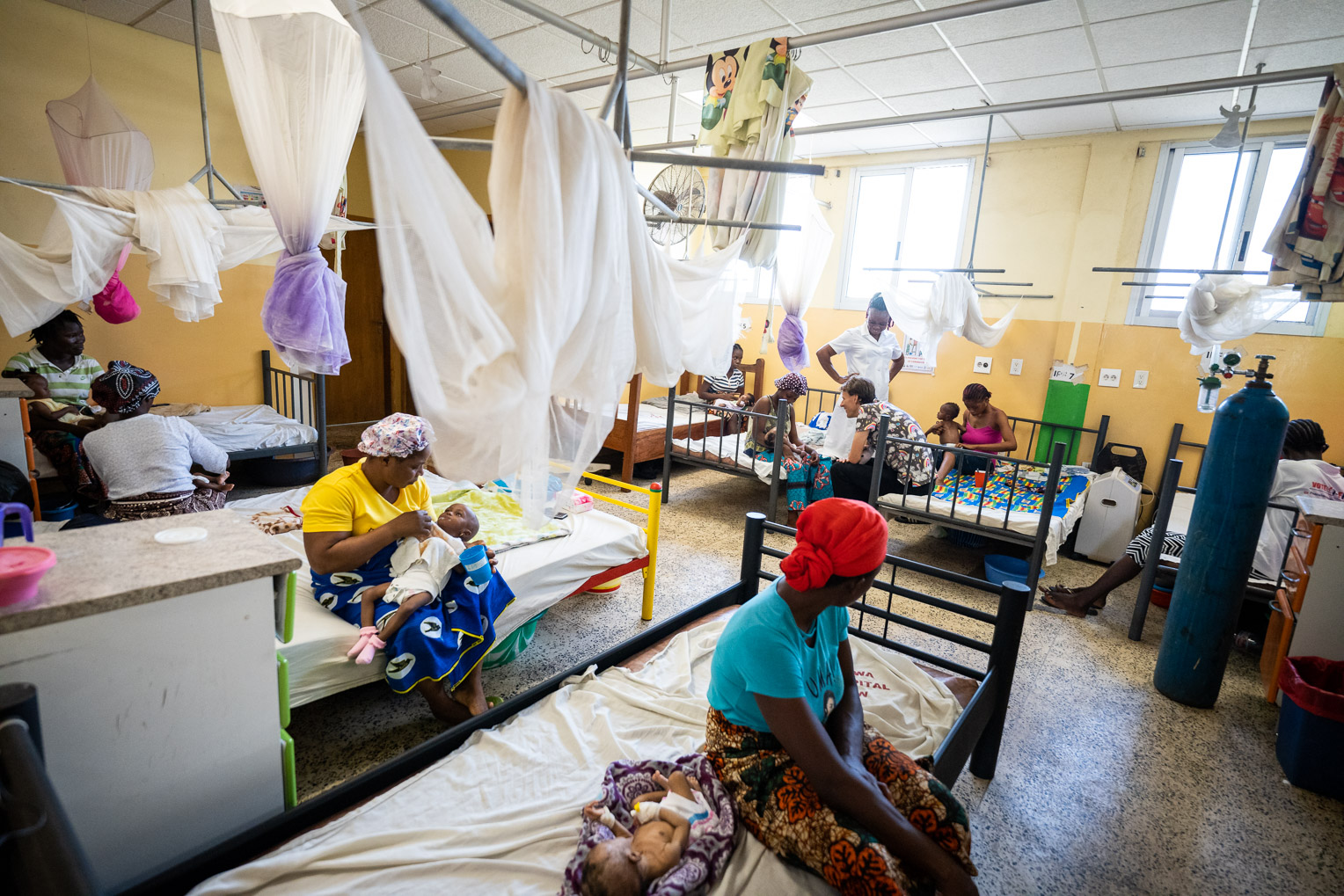
ELWA Hospital’s pediatric malnutrition ward is funded by Samaritan’s Purse.
It should be surprising that malnutrition is so rampant in the country’s capital, but Monrovia is also where the social connections of family are most frayed. The country’s civil wars followed by the ravages of Ebola all created gaping holes in families, leaving Liberia as one of the world’s poorest countries.
Samaritan’s Purse teams go into the communities and offer screening programs to identify children who are malnourished. They then tell mothers about the center at ELWA where they can receive help for their babies free of charge.
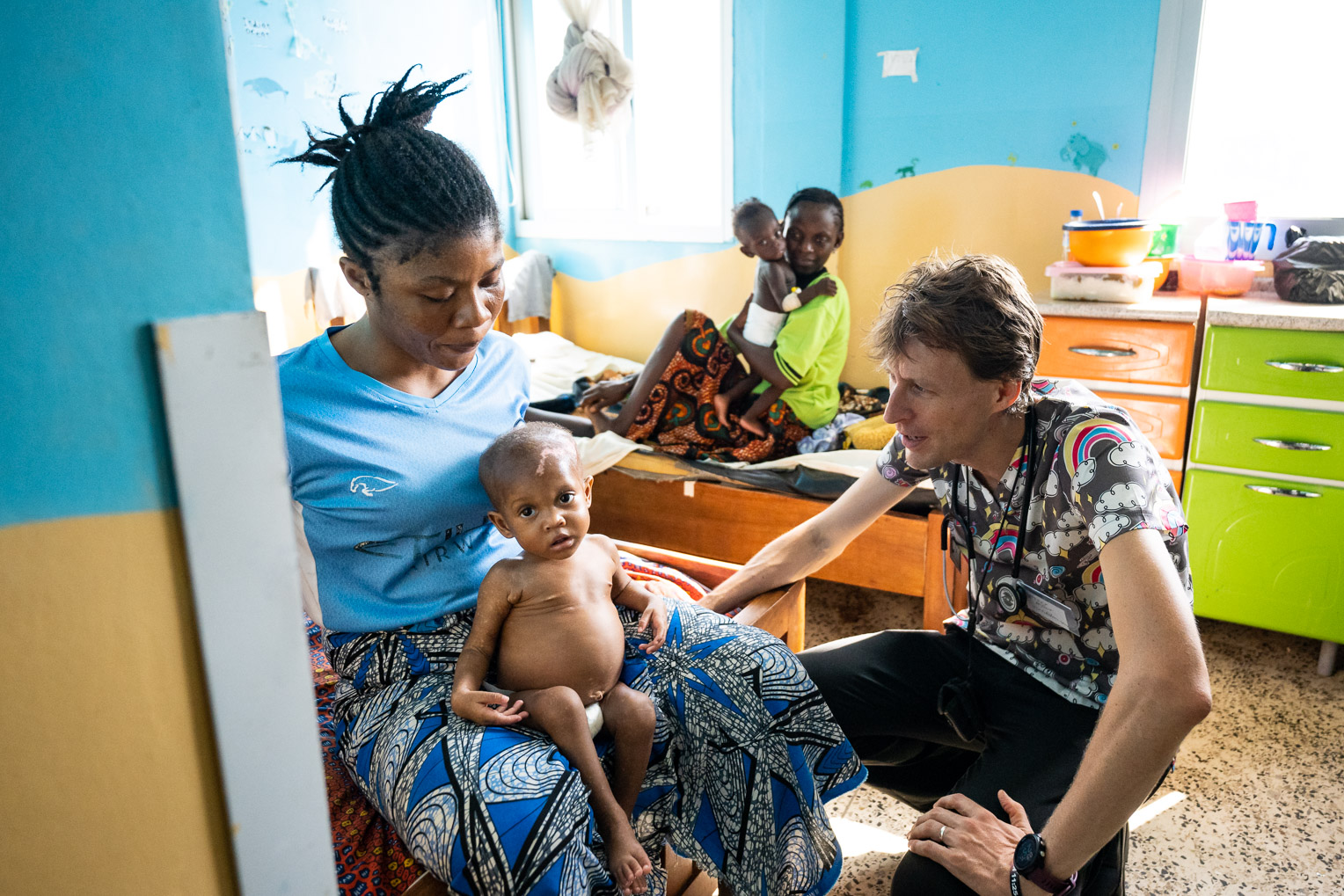
Many mothers don’t know where to turn with their child’s declining health. Malnutrition screening events are announced broadly across radio stations, and then many are sent to ELWA. Many lives have been saved.
“That has had a huge impact,” Dr. Bryant said. “It’s possible we could have lost an entire generation of children in this country. The work of Samaritan’s Purse at ELWA has essentially helped to rescue these children.”
For the moment, Favor was one dire case of malnutrition that was reversed. Rounds of antibiotics, feeding tubes, IVs, and prayer—the baby began to recover. The mother allowed herself to smile for a moment. It would still be several weeks before they could leave.
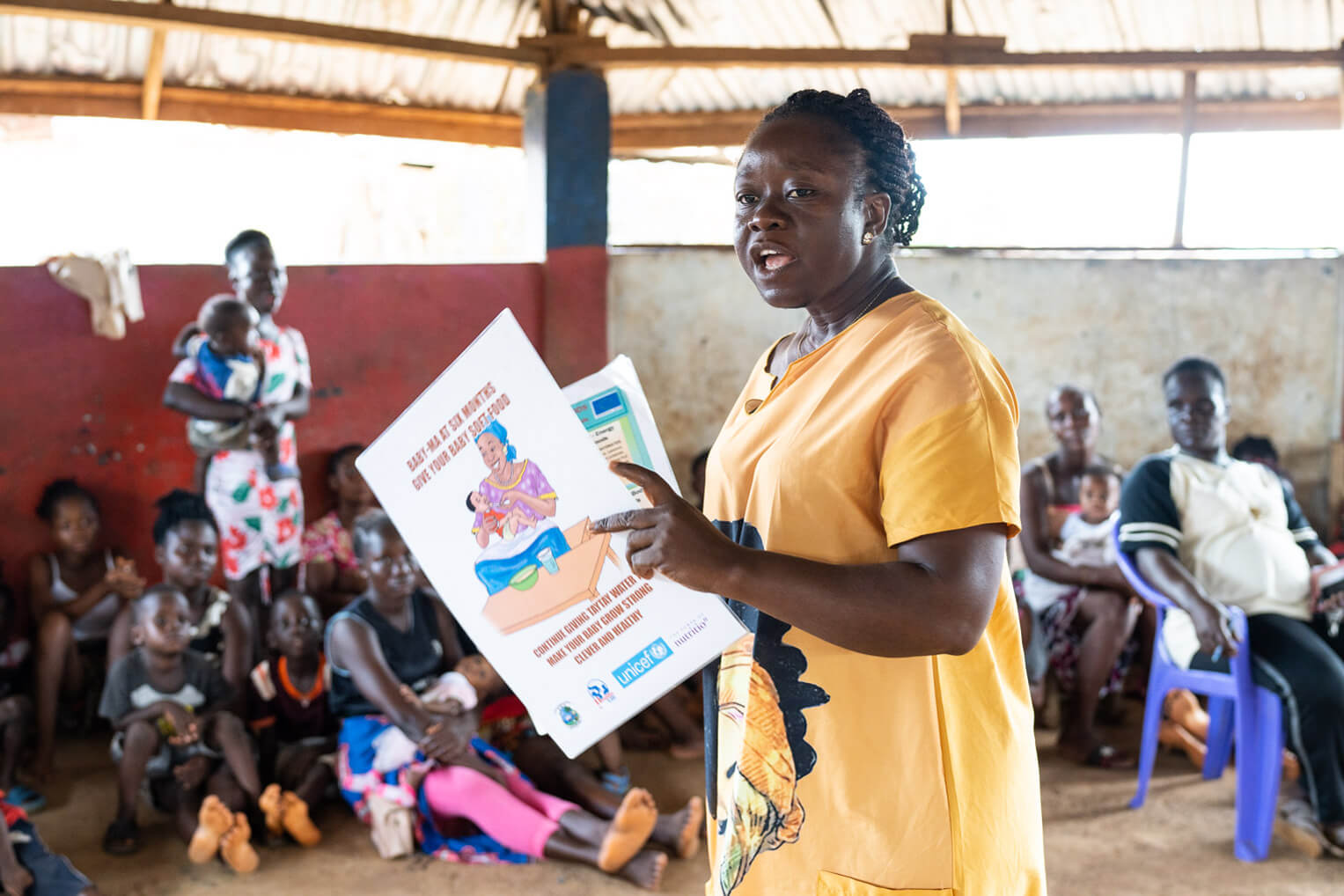
The program instructs parents in safety for pregnant women as well as nutrition for mother and child.
“I think she will be OK,” Dr. Bryant said. “But it’s still a long road.”
Those coming weeks at ELWA are opportunities for the mother to experience the kindness of Christian doctors and nurses, to see the continued recovery of her baby daughter, and to hear the Gospel of Jesus Christ.
“This is the first time many of these moms get to actually see something of Christ. And we’ve got to make that count,” Dr. Bryant said. “The medical practice here flows out of what Christ has done for us.”
Prevention Through Early Detection
The work of helping these struggling children extends outside the hospital into the communities of Monrovia and surrounding areas where Samaritan’s Purse teams provide malnutrition training, screening, and intervention. Peace Island is one such place where we conduct screenings for at-risk toddlers. They are given supplemental nutrition in the form of a paste akin to fortified peanut butter. Other parents, especially those of very young infants, are directed to go to ELWA.
“It’s a huge issue in this country,” said T. Max Zorh, a Samaritan’s Purse nutrition officer in Monrovia. “Through these events, we can measure height, weight, and other [things] to quickly identify and do a quick intervention.”
The screening also serves as a workshop to educate parents in proper nutrition, how to include variety in their own diets and in those of their children, and how to identify signs of malnutrition. Kids age 5 years and younger are the most at risk.
Parents also learn about God’s love for them and their children shown through Jesus Christ.
“We want everyone to receive the Gospel, and we share it at every opportunity,” Zorh said. “As we talk to mothers and parents, it provides us with a channel to talk about the saving grace of Jesus Christ.”
Safer Pregnancies and Babies
In more remote areas of the country, such as in River Gee County hundreds of miles to the far south, Samaritan’s Purse is able to work through local community structures and families to prevent tragic outcomes.
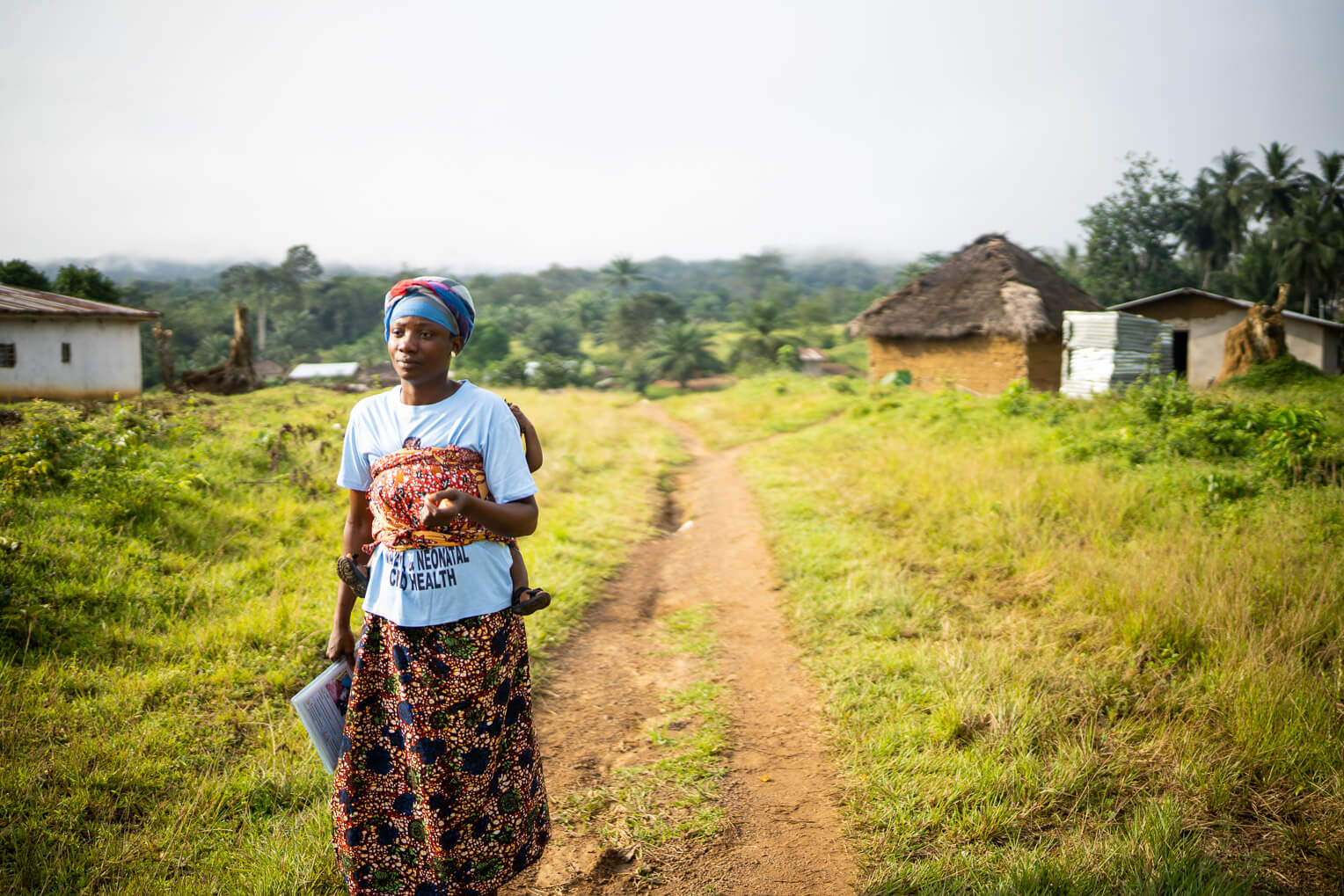
Patience is a Mother Leader with our maternal child health program in River Gee.
Situations like Favor’s would never have time to make it to ELWA, which is typically days away by car. That is why we have trained women like Patience, a leader mother in our maternal nutrition and child health (MNCH) program in River Gee. The mother of four has learned much from our program about how better to care for her children—and for herself during pregnancy.
Patience takes the long path from her home to her village center where she takes part in another of our trainings. What she’s learns today about proper hygiene and nutrition she soon will teach to her neighbors, friends, and family.
“Making sure that you are clean before holding and nursing the baby,” she says. “Making sure that I am getting the right food and that my children are, too. I like to help others to learn the things that I have learned.”
Many of the leaders in the program, which include both fathers and mothers, have traveled to the training overnight, over rivers, many hours away. They’ll return to the outer areas of River Gee to influence many people.
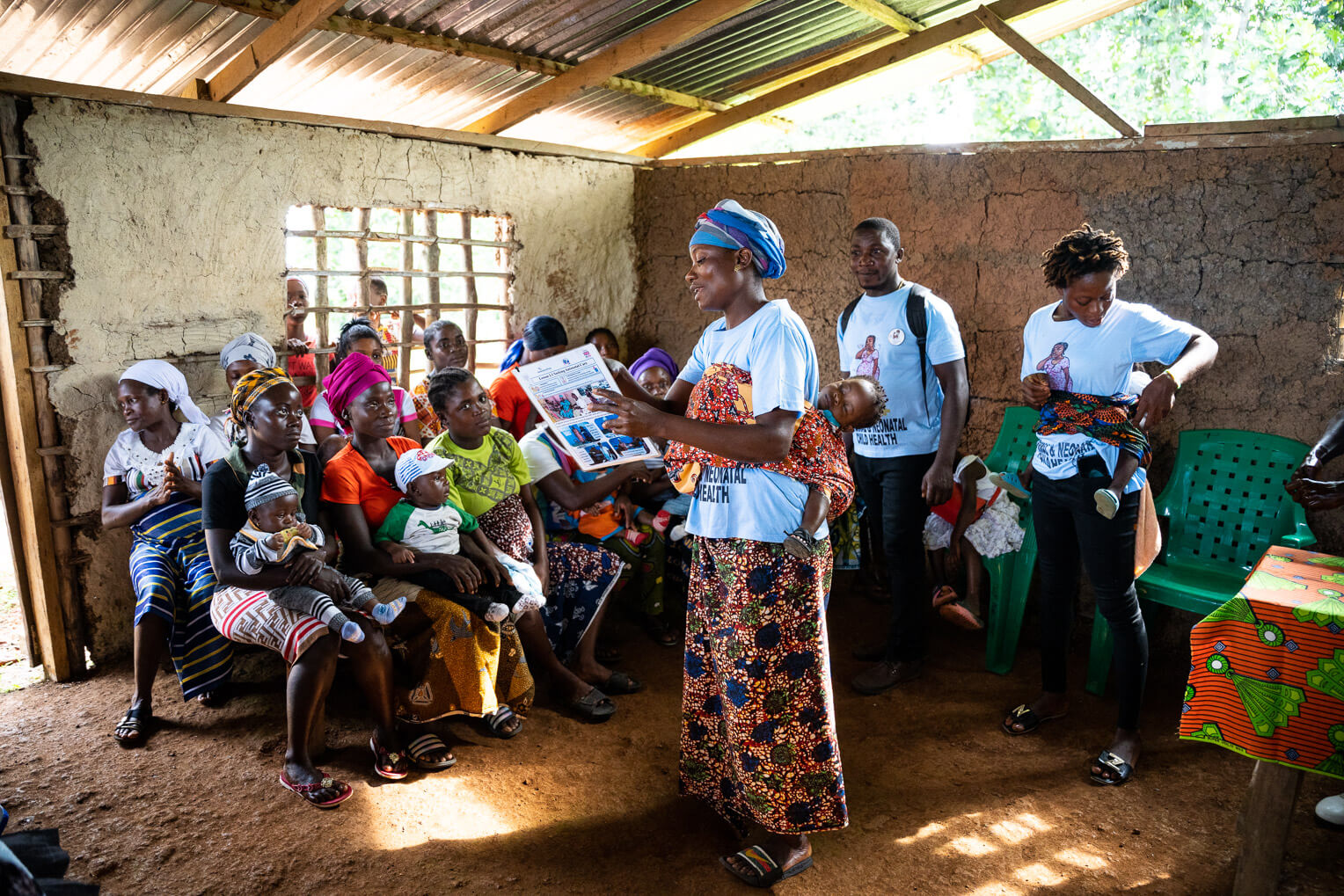
Leader Mothers help instruct other parents in nutrition, hygiene, and reducing risk factors.
Deaths among babies and pregnant mothers have been on the rise here because of pregnancy complications and isolation from medical care. Mothers are taught what sorts of activities and risk factors to avoid, how to identify potential complications, and how to provide proper nutrition to ensure development of their child.
“They are hungry for this health information because maternal death and malnutrition have been increasing in River Gee,” said H. Michael Kesselly, a Samaritan’s Purse MNCH program manager in River Gee. “The leader mothers are very important to this because they are willing to do that extra work, and they are connected to other mothers to train them. These mothers are often many hours away on foot. Sometimes a bridge can be impassable. Many things can happen.” Knowing both how to prevent problems and how to identify them early can be lifesaving.
Samaritan’s Purse has also assisted health clinics in River Gee so they are better equipped and can provide mothers a clean and safe space during childbirth. Most recently this has included beds and new additions to facilities.
“Without the work of Samaritan’s Purse, we would see greater maternal and neonatal death,” Kesselly said. “But now we hope to take these deaths down to zero for families to see that God has done this through His people.”
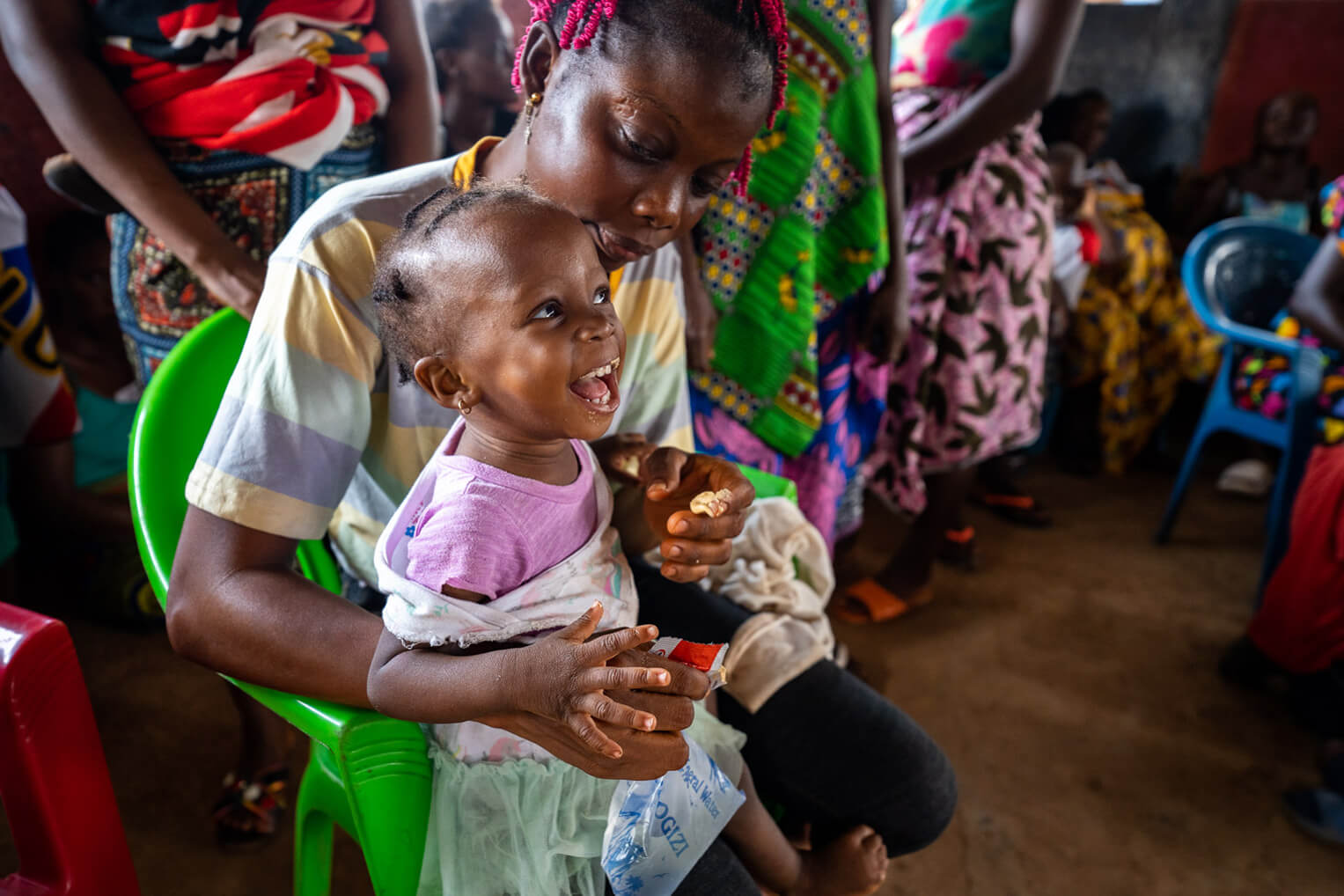
Children, mothers, and families are experiencing renewed health and the grace of God through the ministry.
